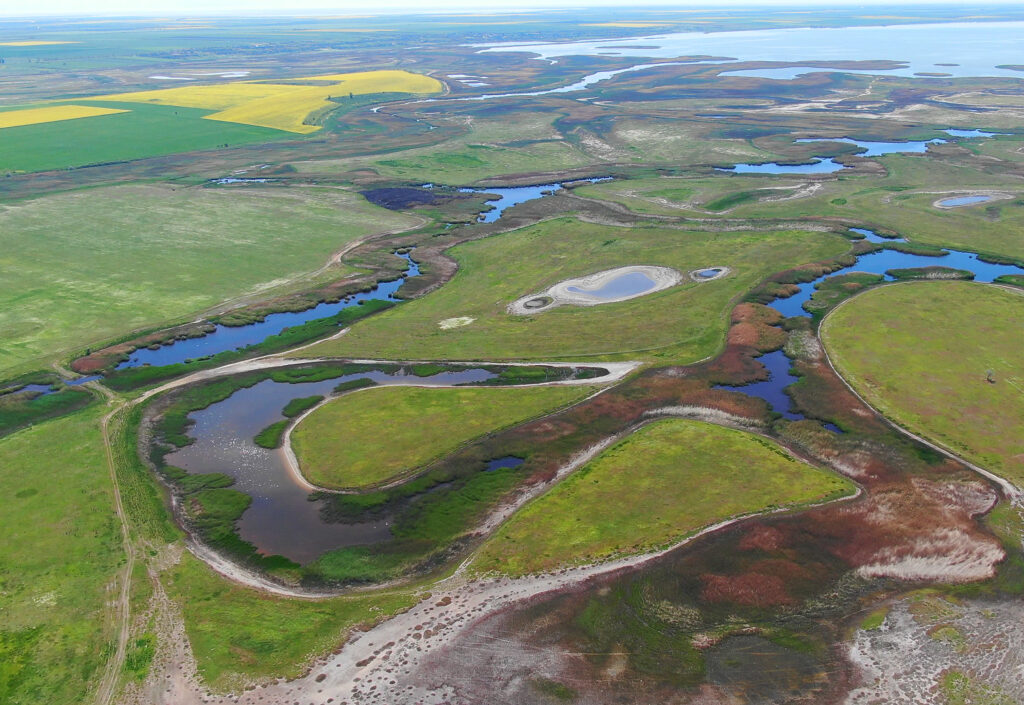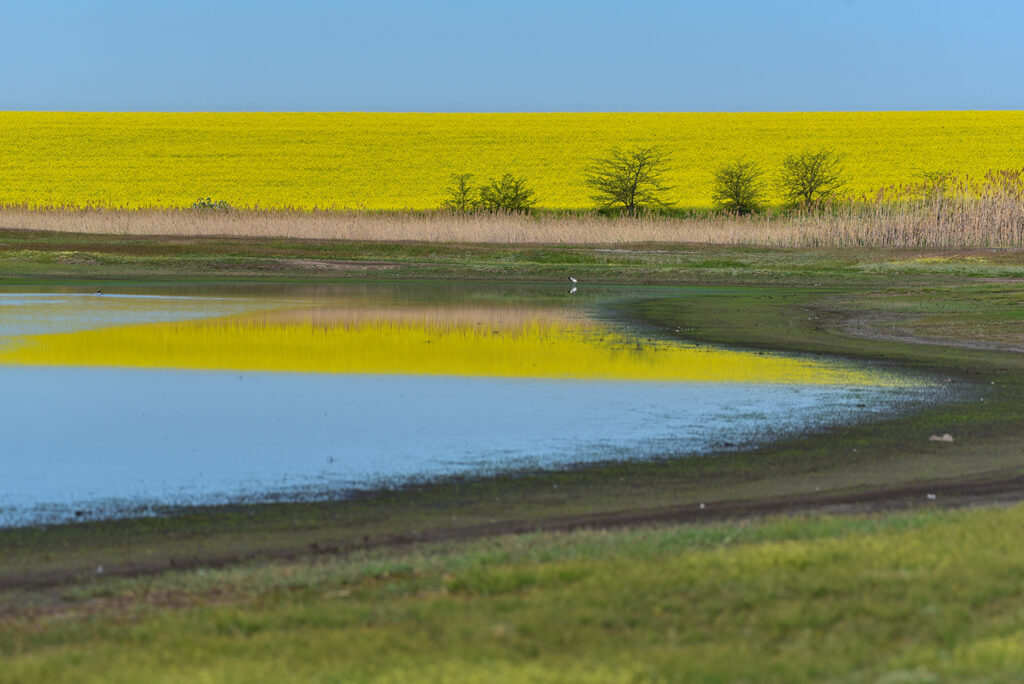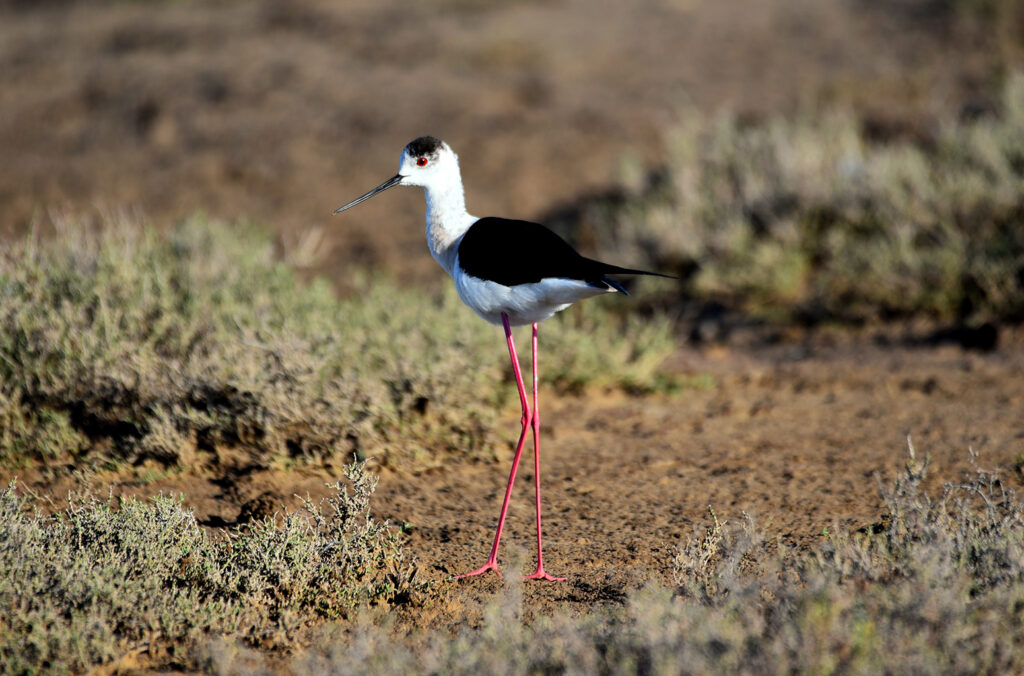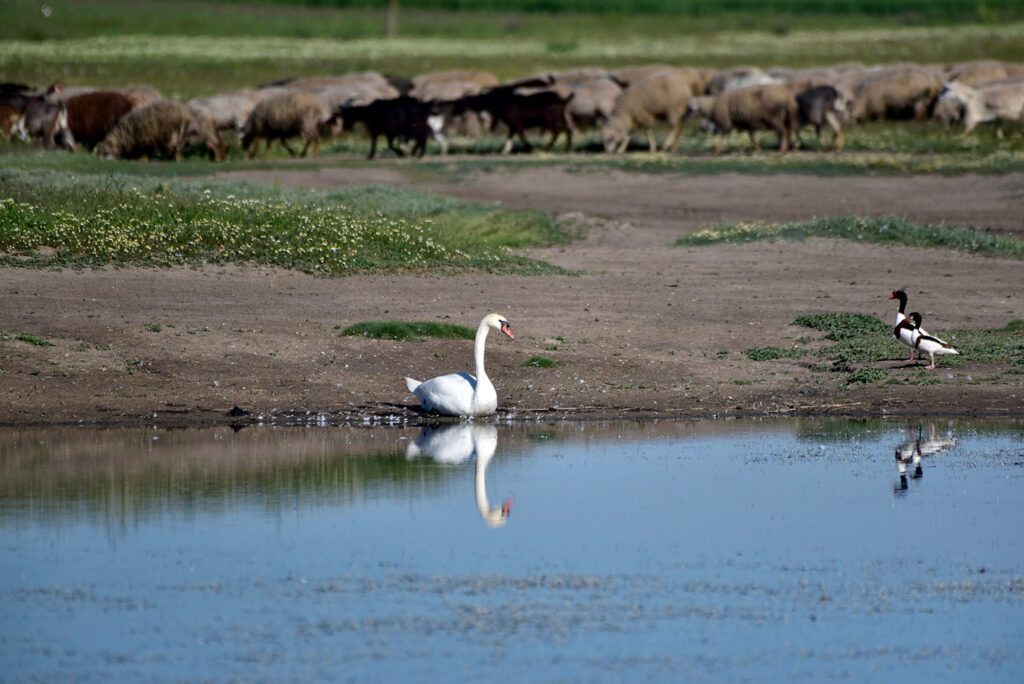Two and a half years ago, 10 obsolete dams and obstacles built in Soviet times were demolished on the Kogilnik, Kagach and Sarata rivers in the upper reaches of the Sasyk Lagoon. The monitoring of the natural system, which is carried out together with the Danube Biosphere Reserve after the restoration of the watercourse, shows that nature is gradually coming back to life.

Ornithologist Maxim Yakovlev visited the upper reaches of the Sasyk, which is a wetland of international importance, for several years in a row and conducted a survey of birds during the nesting period. This year, due to restrictions caused by the war in Ukraine, scientist was able to survey only part of the territory. Birds have been selected for monitoring because they respond quickly to changes in nature, are fairly easy to observe, and indirectly reflect the numbers of other groups of animals they feed on.
After removing obstacles on the rivers, water entered the previously dry areas, restoring shallow meadows. Now the young fish are feeding here, and there are numerous insects, which attract waterfowl. In total, in two years, the diversity and numbers of birds that feed and nest here have increased in most of the areas that have been restored. Among them are the great egret, the greylag goose, the mute swan, the coot, and others that have built nests and raised chicks in areas where they have not been nesting for many years.

“It was the most pleasant to celebrate for the first time the nesting of a great egret in the thickets of reeds directly on the bed of the Kogilnik River. The colony was located near shallow areas, which were formed after the demolition of the embankment. In addition, some species of birds, including the black-winged stilt and the pied avocet, are nesting in the delta of the Sarata River for the first time in the entire observation period. It also testifies to the creation of conditions suitable for their nesting and feeding,” Maxim Yakovlev shared his observations.
Given a chance, nature quickly returns to life and flourishes after a long period of decline. In addition, now, during the war, fewer people visit these areas and disturb wildlife, which also contributes to the reproduction of birds and other animals.

“Birds that are very sensitive to changes in the ecosystem demonstrate this well. They appear where they feel good. But at the same time, this border is quite fragile, we are not talking about stability at the moment, because the rivers still have dams upstream and a range of other environmental problems, and there is still a lot of work ahead to restore and preserve these valuable areas”, adds Maxim.
Restoring rivers and demolishing obsolete infrastructure is gaining momentum across Europe. This year, an Open Rivers Programme was launched to support the river restoration movement in Europe. The new EU Green Policy also promises to restore 25,000 km of rivers in the EU.

“It is very nice that such projects are also taking place in Ukraine. There is an understanding of their importance and examples of river restoration are popping up in different parts of our country. But this is one of the first such projects, and yet funded through crowdfunding. That is why we are especially pleased to see the restoration of nature and the increase in the number of birds and other creatures. Restored meadows are also actively used and benefit the local community”, said Mykhailo Nesterenko, Executive director of Rewilding Ukraine.